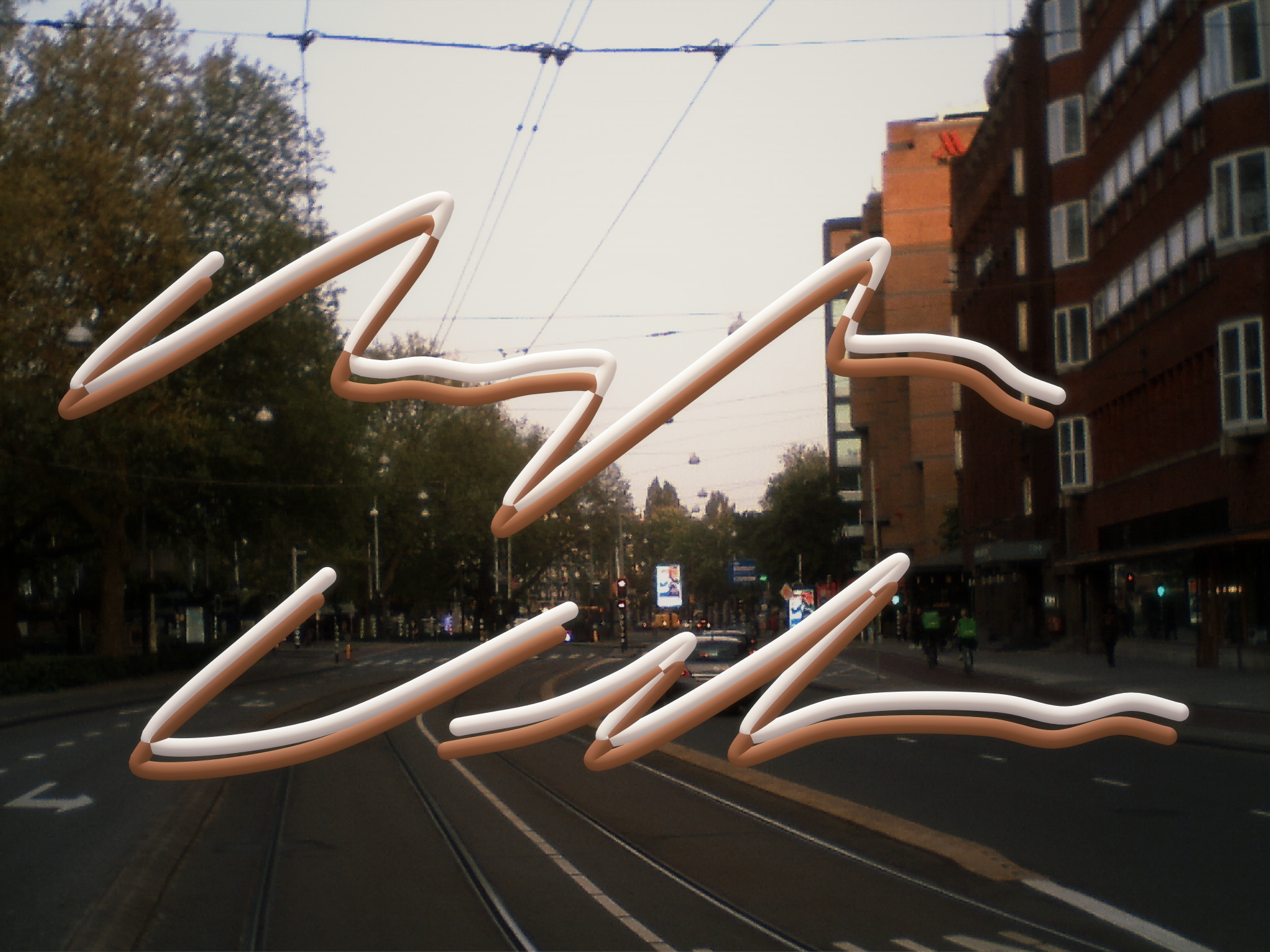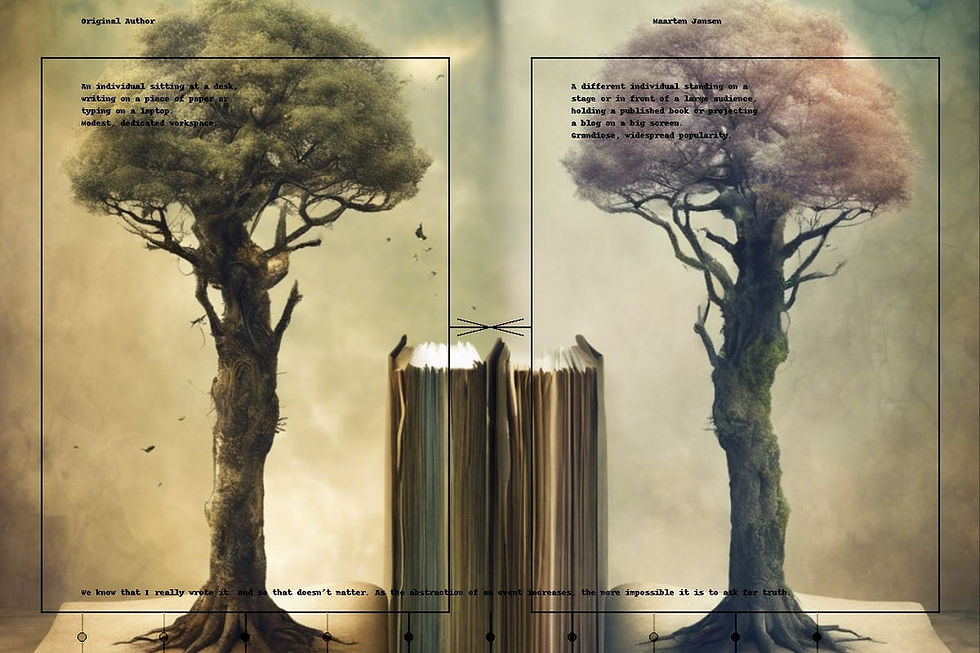Brain Gain 9 - The Inevitability of Representation: Abstracting Truth
- Specialized Generalist

- Aug 6, 2024
- 2 min read
Updated: Aug 14, 2024
Suppose an event actually happened. Let’s take this blog, for example. At this very moment, I am writing it. The act of writing this blog is occurring in real-time, making it a historical fact. The evidence of this fact lies in the very words you are now reading.
Now, imagine someone else takes this blog, copies it verbatim, and re-releases it under a different name—let's say, Maarten Jansen. If someone were to stumble upon Maarten's version and ponder whether Maarten Jansen wrote that blog, the historically accurate answer would of course be no. Maarten Jansen published the blog, but he copied it from The Specialized Generalist. This scenario seems logical and verifiable, making it a relatively straightforward case.
However, the situation changes as the contribution to the historical, natural event, or the abstraction of the event, increases, in whatever form. Imagine Maarten Jansen not only copies my blog but also propels it to great popularity through his channels, his efforts, his energy, and his commitments. This blog, under his influence, might achieve widespread fame. Suppose this all happens without my knowledge—after all, my blog's audience consists of a loyal but small group of about seven readers. Suddenly, everyone who reads Maarten’s blog attributes the authorship to him. From a historical standpoint, this could be considered accurate by the masses, while it isn't.
Here lies the crux of my argument: any contribution—whether by time or by any other elements—to the preservation and dissemination of a historical event inevitably subjects the original event to layers of representation and thus abstraction, which, in turn, obscure the initial truth. This is why discerning truth in matters of faith and belief is often so challenging, if not impossible. These issues span millennia, with contributions from countless individuals and compilations of many texts.
Consider the case of Maarten Jansen’s blog (of mine). Despite the abstraction through representation and subsequent popularity of his version, I, and perhaps a few others, know that I was the original author. However, this reality does not negate the existence of Maarten’s blog among his readers. So as the representation—which is naturally subjected to abstraction—of an event increases, seeking the truth becomes ever more elusive. What is true is then gradually overshadowed by the evolving representation of it, which, in its own right, becomes a (new) kind of truth.
Ultimately, the more an event is represented, the more impossible it becomes to discern the absolute truth. In this realm of increasing representation, where the essence of the original event intertwines with the perceptions and contributions of others, truth becomes fluid, a shifting entity, shaped by the currents of time and space. We remember and implement truths by, through, and thanks to their representation. So what we know to be true is conditional; Truth is relative to its persistence. Truth dies as soon as it reproduces, giving way to an ever-evolving narrative that, while possibly rooted in the original, becomes something entirely new and separate from its source, in a way that is proportionate to its level of representation.





Comments